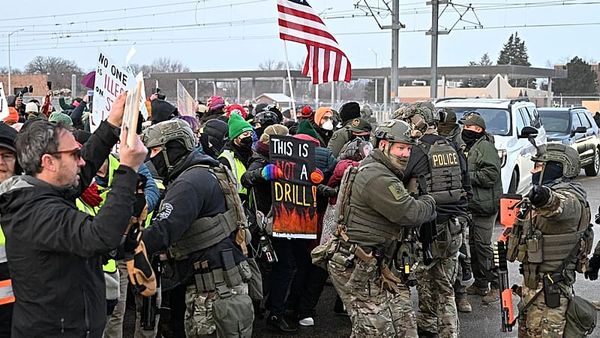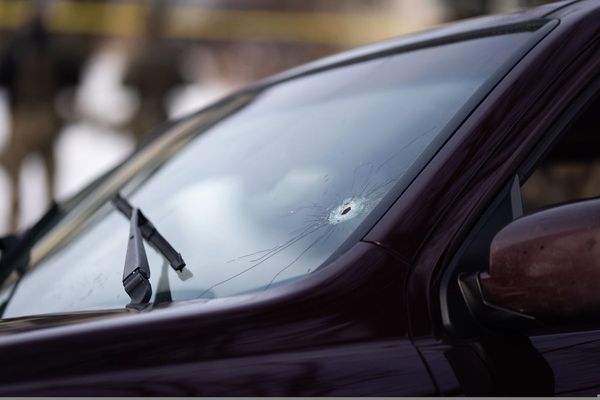
In a frustrating final report, the chair of the Manchester Arena inquiry half gets at the truth. Tasked with answering the most important question – could the suicide bombing at the Ariana Grande concert on 22 May 2017 have been prevented? – Sir John Saunders admits his approach will have “raised more questions” in the minds of the families of the 22 who lost their lives.
It is nearly six years since that tragedy and yet Saunders feels he cannot fully explain what were the two pieces of intelligence that MI5 obtained in early 2017 which, if acted upon, might have prevented Salman Abedi from carrying out the deadly attack. It was “a significant missed opportunity”, the inquiry concluded, but such is the British state’s addiction to secrecy it cannot be made public, even now.
There is no independent way of judging whether this amounts to a cover-up. But it may well rankle with victims’ families, as the initial statement from Richard Scorer, a lawyer representing 11 of them, suggested. Realising that the attack could have been prevented is “a devastating conclusion”, he said, but it came from a report that “provides less information than we would have wanted”.
A public inquiry represents a rare opportunity to overcome Britain’s dysfunctional intelligence oversight system. Spy chiefs do not have to face public select committees, but rather the intelligence and security committee, which meets behind closed doors and redacts its reports (its own inquiry into the 2017 terror attacks does not raise the missed intelligence).
So Saunders’ coded criticisms are doubly frustrating to interpret. What he says is that “piece of intelligence 2”, if acted upon promptly, “could have given rise to information” that meant Abedi’s return from Libya to the UK (four days before the attack) “would have been treated extremely seriously” by MI5. Trust me, Saunders added, it is all set out in a secret, closed report, now sent to the spy agencies and their political masters.
Yet, it would be unwise to be excessively critical. Even as is, the inquiry report is full of hard reading for MI5. It appears to have teased out an attempt to brush the story about the two key pieces of intelligence under the carpet. A previous review of MI5’s process of reviews conducted by David Anderson KC in 2017 suggested that, in marking its own homework, the spy agency had come to a different conclusion.
At that point, it was assessed by MI5 that the new material related “not to terrorism but to possible non-nefarious activity or to criminality on the part of Salman Abedi”. Anderson later gave the impression he understood it may have been to do with drugs or organised crime. Even if this last-minute intelligence had been acted upon, MI5 concluded, “on the clear balance of professional opinion” it would have been “unlikely to result in the pre-emption of the gathering plot”.
This is not what Saunders says, because the inquiry chair was able to investigate further. MI5 has, in the past, put up a single corporate witness to give evidence. When appearing in public they give evidence anonymously from behind a screen. But in closed sessions – running for 10 days without families, public or press present – Saunders heard not just from “Witness J” but from the intelligence officers directly involved in handing the Abedi material in question.
“It became apparent,” the inquiry concluded, that MI5’s “corporate position did not reflect what those officers did, thought or would have done at the material time”. The officers on the ground knew both pieces of intelligence were of terrorist significance, but they were not shared with police – “a further example of a communication breakdown” between MI5 and counter-terror officers. In the case of the second piece of intelligence, the most significant, it was simply not acted on fast enough.
The inquiry also documents that MI5 was under significant pressure in 2017, when Islamic State was at its height and an attack in Westminster had already taken place. There was “a pace of threat that MI5 hadn’t experienced before”, Witness J conceded, while its north-west team was, in the words of one officer, “struggling to cope”. MI5 says it did not affect specific judgments made about Abedi but it is hard to believe the pressure helped intelligence officers see the big picture.
It also illuminates a more fundamental point. At this high point of IS, the heavy focus of MI5 was on Syria, where the terror group held territory – and far less on Libya. This was where Abedi and his brother had regularly travelled since the fall of the Gaddafi regime in 2011. It was where he was probably first radicalised, during the ensuing Libya civil war. But, the inquiry concludes, the focus on Syria meant the risks from the north African country were “underestimated … in 2017”.
MI5 makes the reasonable point that its officers are human, having to make difficult judgments from fragmentary information, and that – as the MI5 director general, Ken McCallum, said – the organisation takes any failure to stop a terror attack to heart. “MI5 exists to stop atrocities,” he said in a rare and heartfelt apology.
But it remains the case that Abedi, with the help of his brother and probably others, began acquiring bomb-making materials from early 2017 and was able to build a hideous and deadly device in one of the UK’s largest cities for several months without being noticed, interrupted or stopped.







